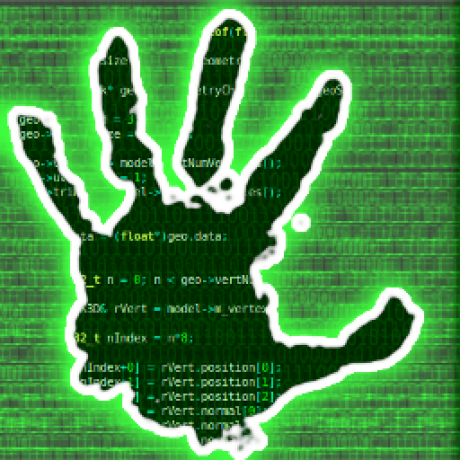Time for a discordant voice in this festival of consensus. Installing Debian is like climbing a mountain for anyone who is not an experienced Linux user. If you don’t believe that, go try doing it while attempting very hard to imagine that you are a non-techie Windows user. You will not succeed.
Yes, other distros do manage this better. And yes, that is a problem, because, once up and running with the right defaults, Debian is just fine for non-techie users. Debian could quite easily be the FOSS alternative to Windows for ordinary people who care about privacy and freedom but don’t have advanced technical skills. Instead they are stuck, de facto, with slightly-compromised alternatives like Ubuntu and Fedora.
So happy birthday to Debian, and congratulations. But I think we should all be more mindful of the bigger picture here: desktop personal computing is in a steep secular decline among everyone except techies and a few other groups of professionals. We need to think better about how to make all of this sustainable. The lowest-hanging fruit is an easy-peasy installation funnel, and Debian is failing at that.
UPDATE: People are misunderstanding the substance of my criticism, which admittedly was not very obvious. For a normie Windows user, the difficulty of getting Linux installed comes before the installer, it’s the problem of making a boot medium. Debian’s approach is to say “Here’s a list of ISO files, bye!”. That will not cut it for anyone but experienced Linux users. Some people here are saying “Tough luck to them”. I think that’s a shame.
UPDATE 2: What do people here hope to achieve by downvoting sincerely expressed opinions? There is no misinformation in my contributions to this thread, it’s just my viewpoint, which I took time to express as best I could. Would you really prefer it if everyone had the same opinion, i.e. yours? Would that not make for a boring “discussion”? I don’t get it. Personally I never, ever downvote anyone for expressing their opinion sincerely, no matter how much I disagree. I have not downvoted anyone in this discussion, indeed I have upvoted lots of them. I really hoped Lemmy would be more civilized than that Other Place, that it might have more of the FOSS spirit of exchange and tolerance. Disappointing. Have a nice day anyway.
I remember installing Debian in 2008 as a complete linux noob and only pressing the space bar to install it. Has the procesd changed in the meantime?
Yes, once you have the install medium, i.e. today a bootable USB, it is just a question of clicking to accept defaults. So, back then, unless you got a CD-Rom delivered to you by mail, you must have done much more than “press the spacebar”. I also managed to install Linux back then as a noob, but it was not a easy process, I only managed it because I was very motivated.
So, exactly the same as windows.
Can you even order windows on a CD anymore?
Sure, but an ordinary user does not have to install Windows since it is already there. This is Linux’s burden. IMO a lot of techies in this discussion are underestimating it.
Who is going to pay Dell, HP, Acer, etc to install Linux?
Just because MS can throw billions at these OEMs doesn’t make that “Linux’s burden”.
See also Dell & Lenovo sell laptops with Ubuntu.
deleted by creator
So, in concrete terms, you are disputing that Fedora and Ubuntu make this chore much easier than Debian does? Or you just don’t care?
Have people installed Debian since Debian 12? The installer is very straight forward, and Debian 12 also comes with all the firmware modules to make things “just work” for people.
I would like to know exactly what Debian does wrong other than a blanket statement of “it’s hard”.
As a supposed technical person, I am ashamed of myself of how long it took me to download the ISO for my VM. Its like 7clicks from homepage into increasingly more information rich site to get their full iso. Originally I browsed through a bunch of pages before realising where it was.
TBF their netinstall iso is available in just two clicks but I was too stuborn to get the full iso.
The netinstall is the recommended installer, why do people want the big iso? It’s not going to save you any time. You’ll be downloading less overall if you use the net installer.
Might be I am biased from past when i had very slow unreliable internet. Also since it was for a VM I would be installing it a few times so better to have the full iso.
I definitely agree their website needs work, it is very confusing to browse if you need anything other than the net installer! I find everything else by using search engines instead.
I just tried it myself, to get from the homepage to the amd64 installer file download link, it is exactly 7 clicks. This is a flaw in Debian that needs to be resolved, as not everyone has access to internet off the bat due to some wifi chip makers (COUGH realtek COUGH) not having very nice Linux support. A general re-design of the website to modernise it would be a good way for Debian to freshen itself up and attract new installers. Sadly, I am a systems programmer and not a web developer, so I am unable to personally contribute much :(
Realtek works better than Broadcom lol
Same. Imagine how a Linux neophyte is going to fare with a laptop, which requires a physical boot medium.
Mainly what is hard is getting the boot medium set up. It could be so much easier, as other distros prove.
Hmm? I’m sorry, I’m not following because all distributions follow the same format here, which is that you flash an ISO to a USB stick (or other removable media).
This is, in fact, how it also works for Windows.
Installing Debian is like climbing a mountain for anyone who is not an experienced Linux user.
Here’s a more user-friendly workaround.
(Pure) Debian is almost never recommended for noobs, I don’t understand the discussion. People would usually recommend Mint for Windows users.
Yeah but why is it not recommended for noobs? I was a noob once and I managed on Debian just fine - once past the ordeal of working out how to make the boot stick. That is what I really meant by “hard to install”, but everyone took it to mean the installer software, which has been noob-friendly (if ugly) for years now. I should have been clearer about that.
100% THIS. Ex-Windows, came for those reasons, tried those distros, didn’t like those compromises, went to Debian, everything was so hard I settled on Arch.
Another thing: I get the reasons why not, but I would love if Debian SID was more arch-like to use it as a daily driver. Docker is unsupported on it, for example. It makes sense, because of it’s purpose. But personally, I would love to always have the latest kernel, packages, and on the most popular base, and also because I would love to wear the flag of THE bastion community distro.
IMHO it is really hard to talk about installers.
I 100% agree that the Debian installer has a lot of room for improvements, just from the top of my head
- Make default installations much easier
- Collect needed information before installation starts (instead of the a little information, a little installation process at the moment)…
OTOH, and that is the main selling point: The installer is very flexible, if you know what you are doing and my specific needs are therefore easier served with the Debian installer than that of other mainstream distributions.
In the end, I would happily see a username-password-one-click default option for the Debian installer while not taking anything away from the current one. (Just move all the input to the front.)
My point should have been clearer. Wasn’t talking about the installer, which AFAIK is now pretty much as simple as Ubuntu, only uglier. I was referring mainly to the real obstacle of getting Linux up and running: making the boot medium. I mean, really, expecting noobs to know how to do that, or else just hinting vaguely about what 3rd-party tools to use, or how to use
ddetc - come on, that is just not realistic. Others disagree but IMO this very much is Debian’s problem to fix.
I get your point - but here’s the thing: your average Windows user doesn’t even know how to install Windows. And for a good subset of them, even installing a browser extension is a challenge.
deleted by creator
deleted by creator
About downvoting, as far as I can tell Lemmy’s default sort order is Hot, so most recent. But I usually switch it to Top, so by points. IMO downvoting to disagree is a complete anti-pattern. Effectively what you’re doing is silencing someone as a lazy alternative to expressing your disagreement with them. Literal cancel culture. They knew this 20 years ago, hence Slashdot abandoning downvotes in favor of words like “Interesting”, “Funny”, “Irrelevant” etc. But that was too complicated for the R-site, so here we are.
deleted by creator
This is absolutely untrue, Debian even ship with proprietary drivers now. Stop spreading misinformation
What are you talking about? I am saying that ordinary Windows users are going to have a hard time getting Debian up and running, mainly because of the complexity of making a boot medium. That is all.
They are not, stop spreading misinformation. There are guides on how to do it and it’s the same for most OS including windows
Hm I dont agree that its fine once running.
- upgrading is a total pain. I can imagine many people just dont do that at all. Like, no official documentation, anywhere you can actually find it? No automated command? Literally manual editing of a sources file?? Checking for held or not upgraded packages again to avoid breakage?
- apt is pure garbage. Nala is king, and I think they should switch.
I think a fully self updating and upgrading Fedora Silverblue/Kinoite with actually good presets would be user friendly. This means no broken Firefox, flathub, automatic updates, some services enables, some fixes here and there. Easy install, everything preset, install Flatpak apps through the GUI and forget it. Automatic upgrades should be held a month or so to avoid breakages.
but nala is only wrapper it don’t work without apt
Yes of course. But the apt frontend is horrible. Nala wont fix the completely manual upgrading process, but it automates some other things like updating the repo metadata.
Interesting. I agree that getting automated security upgrades right is super important. IMO even technical users should not be doing security upgrades manually. They should happen by default and be builetproof. On Ubuntu and I guess Debian,
unattended-upgradesis supposed to do this. But over the years I have had terrible problems getting it to run reliably when the internet connection is unreliable, i.e. on a laptop rather than a server. That is revealing. I don’t understand why fixing this is not more of a priority. We cannot invite normies onto a platform where security requires babysitting.Yess, totally. Fedora Kinoite will get automatic updates soon. But while I like the idea, its still semi-rolling and not a stable distro actually.
It’s a great base for general desktop use as well as server. Been using it on my PC for years now, and aside from a few 3rd party repositories it has everything I need. It just works and continues to work.
best distro ever
All my & my clients servers run on Debian ❤️
It ain’t even close
Debian is my go-to distro whenever stability is desired.
I use Arch btw (on my desktop), but I would never run it on my server… I feel that I could easily ruin my database (Postgres) if I am not careful enough with the rolling release.
The Arch website runs on Arch :mindblown:
I use Arch btw
…
Nice! I started using it just this week. I built a computer to serve as NAS with Debian and ZFS.
I’m also considering moving my Ubuntu based server to Debian; it gets too many package updates that I frankly don’t care about, plus even Ubuntu server feels a bit bloated.
I moved from Gentoo to Ubuntu a few years ago precisely to reduce my workload; I just wanted it to work… and now I’m considering Debian for the same reason.I’m in a similar boat. I’ve been using Ubuntu on my servers for years but all the crap around snaps and paid sec updates has worn me down. I’m actively in the process of switching it all to Debian.
Snaps seemed like such a time-saver until I tried installing some and they just didn’t work at all, or needed some workarounds and janky weird solutions to even function.
Specifically I’m talking about microk8s. What a god-awful snap, I never got it working and it’s completely broken out of the box. Ugh, I’m eyeballing a move to Debian for my headless servers too.
deleted by creator
Something a Gentoo user might care about is the distro’s compile time options. Ubuntu uses -O2 and LTO, Debian uses -O1. Debian has always been noticably slower overall for me.
Don’t do what I did and go with Tumbleweed. It gets more updates than Arch.
It’s not that difficult to build your own kernel based on the official debian one: https://kernel-team.pages.debian.net/kernel-handbook/ch-common-tasks.html#s-common-official
It doesn’t make much of a difference in the kernel, but I definitely notice it on Debian’s Firefox vs Flatpak.
deleted by creator
debian is the goat if I want something that just works
Debian will run on every server I will ever set up and for good reason!
Here I am regretting my decision to move from CentOS to rocky on my servers
I started with Ubuntu servers and moved on to Debian, never used anything else much because it always worked great but Redhat clones are supposed to be really nice too and I love Fedora on desktop! What’s the problem with your Rocky server?
It’s just the drama that IBM is causing in the redhat world. It makes me nervous.
Don’t worry too much about that, it sucks but won’t kill Rocky, Alma or Oracle because Redhat doesn’t have the rights to do that, they can just make maintanace of those a lot harder! ;)
I’ve been happily running Debian for over a decade. Stable for servers, Testing or SID for laptops and desktops. The original installs not still running and upgrading are ones on hardware too obsolete to be useful (SheevaPlug). Still probably supported by Debian though!
Including one install that started as Mint Debian Edition, was upgrading to Testing, then cross graded from 32bit to 64bit, been through 3 motherboards and is now Stable for it’s final days before the disk is scrapped.
I love the pacakaging, the philosophy and all the platforms supported (including really old ones).
I literally count it among the proof humans are not irredeemable.
Edit: Expand about “obsolete”.
How stable is Testing for daily use by the way?
Absolutely fine. Probably helps I’m a XFCE man so at least my desktop doesn’t suddenly change. I enjoy the constant incrementing of stuff. Gets boring before a Stable release during the freeze.
I really enjoy Debian. I have no need for bleeding edge software releases, what I need is stability. I even run Firefox ESR 😀 It’s quite hard to brick a Debian stable installation (if not doing any extraordinary that is).
Removed by mod
Same here. I use Debian on everything for years and it never broke my workflow and I never experienced a breaking update. Since Firefox-ESR also finally works with hardware acceleration OOTB for me, I am very happy.
HAPPY BDAY DEBIAN!!!
EVEN THO I CANT UAE U I WISH U ALL THE BEST
Apt-Get HappyAnniversaryParty
Debian is my “Ol Reliable”. Love it.
Never felt the need to pick Debian since it has very old packages but it’s good with choice.
stable and new stuff on unstable.
I’ve been an Ubuntu user for about 20 years. I’m too lazy to distro hop and never tried debian.
How does debian compare to kde Ubuntu (kubuntu)? Is it worth the switch?
Debian <3
deleted by creator















